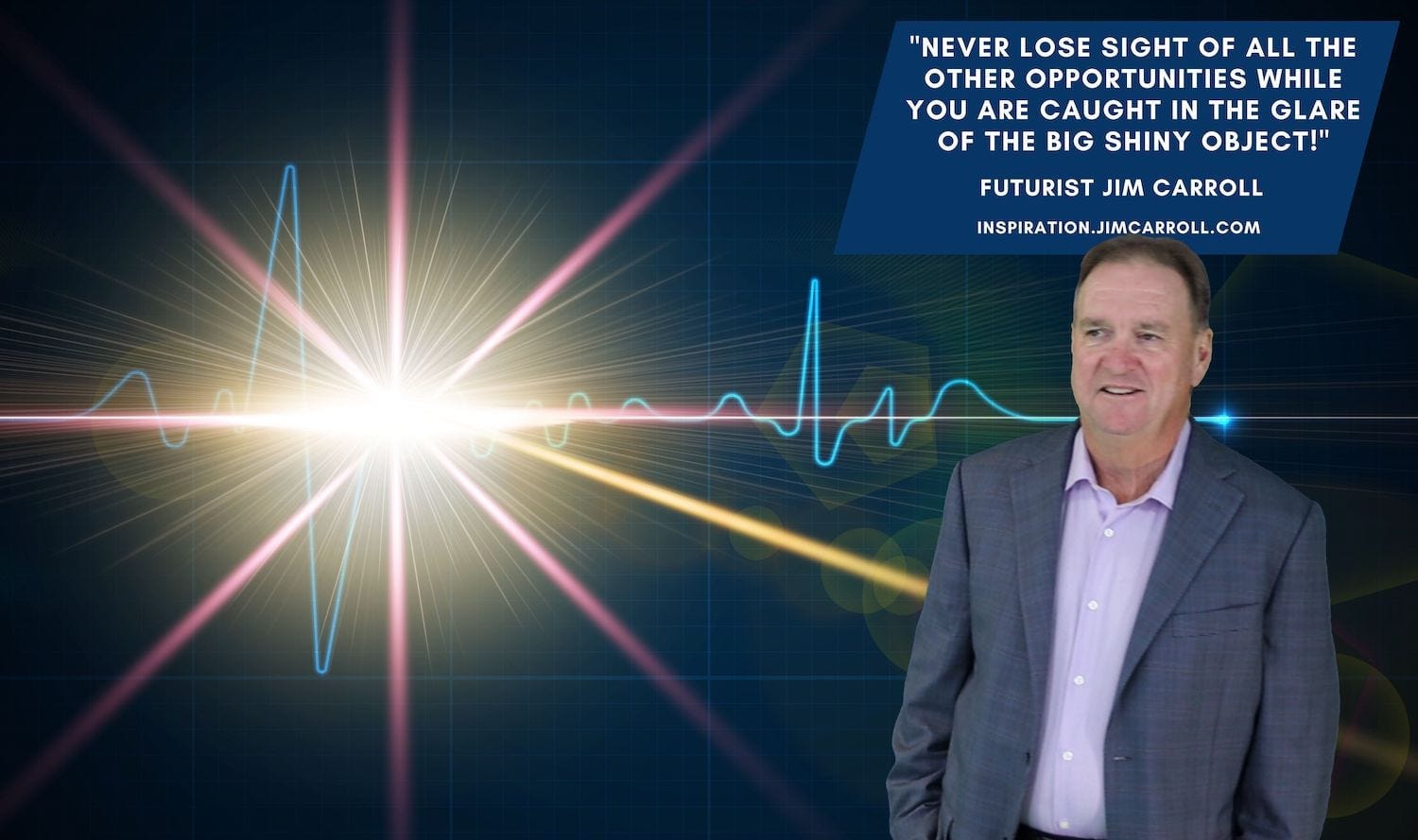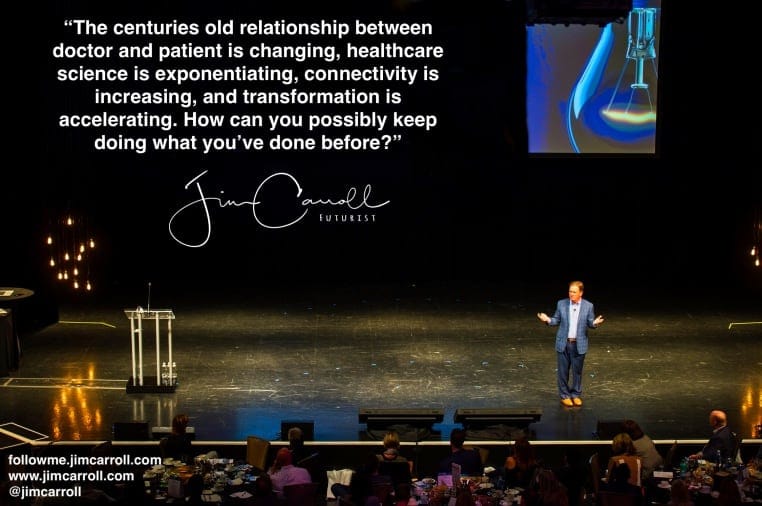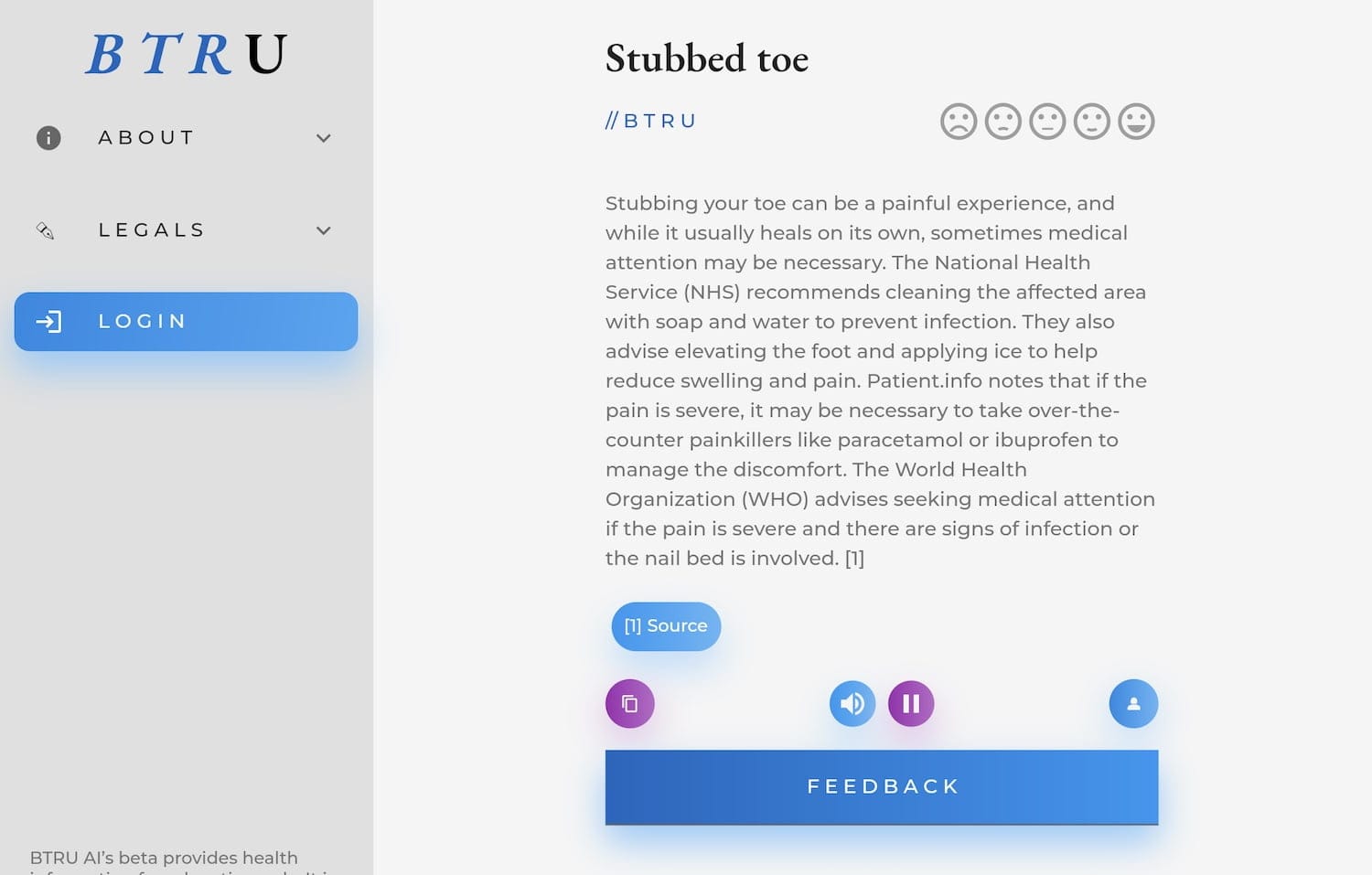
AI dominates the world of healthcare and every other industry - and people are suddenly forgetting about all the other trends which are reshaping our future.
When that happens, people tend to lose sight of the remarkable advances, driven by science and innovation that are occurring. In manufacturing and construction, we are fundamentally changing what we make and how we make it; in insurance, what we insure and how we insure it; in retail, what we sell and how we sell it; and in agriculture, what we grow and how we grow it!
And in the world of healthcare, the same type of remarkable transformation is underway. I caught this in my Daily Inspiration post here a number of years ago:

With that in mind, consider the tremendous advances that have occurred in the science and technology of medicine, from a post I wrote years ago. The global pandemic accelerated many of these trends.
- technology is taking over medicine. BIo-connectivity devices such as remote blood pressure monitoring devices allow for the virtualization of many health care services ("bedless hospitals") at a much lower cost
- many companies are pursuing the idea of a contact lens that will monitor blood sugar/glucose for diabetes patients
- we will one day see 'smart medical implants,' such a bionic eye. This will include a contact lens, surgically implanted, that will feature storage, a battery, sensors, and other electronics to aid in vision
- we have ingestible pharmaceuticals that report on how well a particular cancer treatment might be working
- we will soon see a computer chip that will diagnose infectious diseases through continued bloodstream monitoring
- 3D printing technologies now allow us to provide customized hip replacements and other medical implants, or the printing of prosthetics for amputees -- including in war-ravaged areas such as Ukraine and elsewhere
- computational, real-time analytical healthcare dashboards allow us to monitor and track the emergence of infectious diseases and other conditions in real-time
- smart packaging allows the development of pharmaceutical/drug products that aid in the use of the product
- digital mobile technologies are allowing many people to 'get closer to their health', by constant body monitoring, allowing them to gain a better understanding and actively manage chronic conditions such as blood pressure and diabetes
- wearable sensor technologies (such as the contact lens mentioned above) allow for continuous monitoring of medical conditions
- personalized medicine and pharmacogenetics provide for more targeted drug and medical therapies
- patient-generated data and shared patent-edited medical records are providing for more consultative medical relationships
- 'frugal innovation' is leading to such ideas as smartphone-based medical imaging capabilities
- we continue to see rapid advances in the cost collapse of genomic medicine
- there is an ongoing decrease in the cost of medical diagnosis, including pathology slides, x-rays, retina scans, and more
- continued advances in anti-aging strategies are leading to 90 being the new 80 for some segments of the population
- inexpensive medical tests, often referred to as a "lab-in-your-pocket" devices, are beginning to appear
- the 'exercise is medicine' trend recognizes real methods to reverse the staggering cost of lifestyle disease
- robotic technology advances providing opportunities for those who have lost hands or limbs
Despite all that, the challenges in healthcare are vast. Aside from the political challenges (which are very much a gong show), we are faced with a continuing ramp-up in self-inflicted lifestyle disease (which could cost Western society $150 billion more over 10 years), a shortage of specialized skills, a funding mismatch, expectation gap, anti-science hysteria and more.
But all-in-all, there are a lot of big ideas and bold solutions.
Now layer AI into the mix - all of the trends identified above will now happen faster, and we will continue to see a massive acceleration in everything having to do with healthcare. As I look around, I continue to see the arrival of fascinating new opportunities, such as BTRU ("Better you!"), an AI healthcare search engine that promises to provide straightforward access to better healthcare information, helping people avoid the ad-driven information delivered by traditional search engines.

This is but one example - as I noted in my AI Megatrends series, the world of healthcare is now exponentiating even faster with accelerating trends.
Even so, it would serve you well to remind yourself of all the other trends, beyond AI, which surrounds us today!
Futurist Jim Carroll continues to study many other trends while we live through the era of all-AI-all-the-time!

